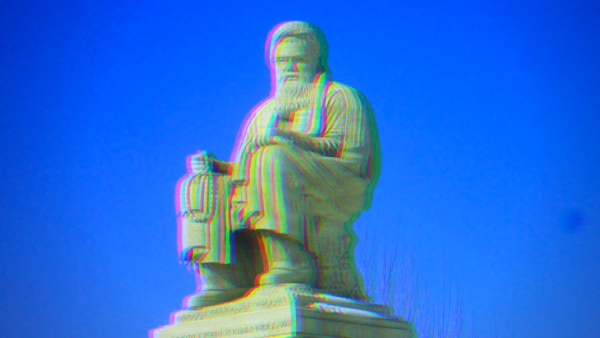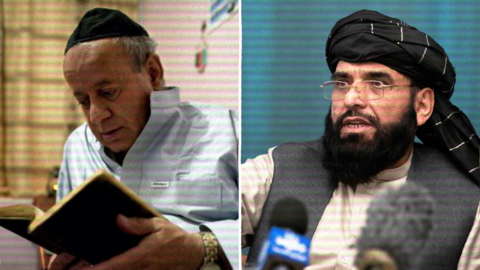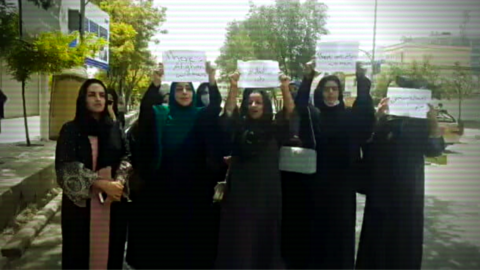While the Taliban's spokesmen were promising international media a different kind of ruling experience, compared to the strict version of Islamic laws they implemented during the late 1990s, the group's fighters in Bamyan in central Afghanistan blew up a statue of famous Hazara leader Abdul Ali Mazari.
In Bamyan of Afghanistan, the Taliban exploded a statue of Abdul Ali Mazari, a leader of Hazara ethnic group who was killed by the Taliban in 1996, said local people. For Hazaras, Mazari is a champion in the long Afghan war. pic.twitter.com/W9QB4FCs5J
— Ezzatullah Mehrdad (@EzzatMehrdad) August 18, 2021
Abdul Ali Mazari was a leader of a Hazara militia that resisted the Taliban rule during the 1990s civil war, in which he was killed by the extremist group that has just taken control of all of Afghanistan.
According to social media reports, the Taliban fighters have blown up the statue that was built in memory of the militia leader who was quite popular amongst the country's Hazara minority.
For decades, the Hazara minority has suffered discrimination by Afghanistan's three other ethnic groups, particularly the Pashtun who make up the biggest ethnic group in the country.
#Hazara leader A. A Mazari was granted title of ‘National Unity Martyr’ by the Govnt of #Afghanistan in 2016 for advocating equal rights for all ethnic groups in the country. He was lured into peace talks by Taliban in 1995 in Kabul, murdered & thrown off a helicopter in Ghazni pic.twitter.com/y5vY6Gx5QI
— Saleem Javed (@mSaleemJaved) August 18, 2021
The Taliban reportedly spent 25 days demolishing the Bamiyan Buddhas. The two most prominent statues were 55m and 37m high. Demolished in March 2001 after being declared idols. #historyplus pic.twitter.com/jY1TI7bR4j
— History Plus + ?? (@historyplusIN) August 16, 2021
Unlike other groups, the Hazarajat-based Hazara are mostly Shia Muslims and have been suffering racial discrimination based on their facial features, which associates them with Mongolians and Turks. According to estimates, Hazaras make up about 19% of the Afghan population.
As soon as pictures of the destroyed statue of Abdul Ali Mazari appeared online, social media users circulated it questioning the authenticity of the Taliban's claims of a new era and of their commitment to protecting minority rights.
Flashback to 2001 when the Taliban blew up and destroyed Bamyan Buddha statues. https://t.co/oEW2bJeaOd
— Golnaz Esfandiari (@GEsfandiari) August 18, 2021
'They've been putting on a facade of tolerance in front of the cameras to gain international recognition and legitimacy.'
— GB News (@GBNEWS) August 19, 2021
Hoyat Yakobi is a Hazara activist in Wolverhampton and tells GB News the Taliban have not changed. pic.twitter.com/cnpp3h8xJI
Some online people also remembered the famous scenes of the Taliban fighters who blew up Bamiyan Buddhas in March 2001, shortly before the US invasion of the country, which ended the Taliban's rule for 20 years.









